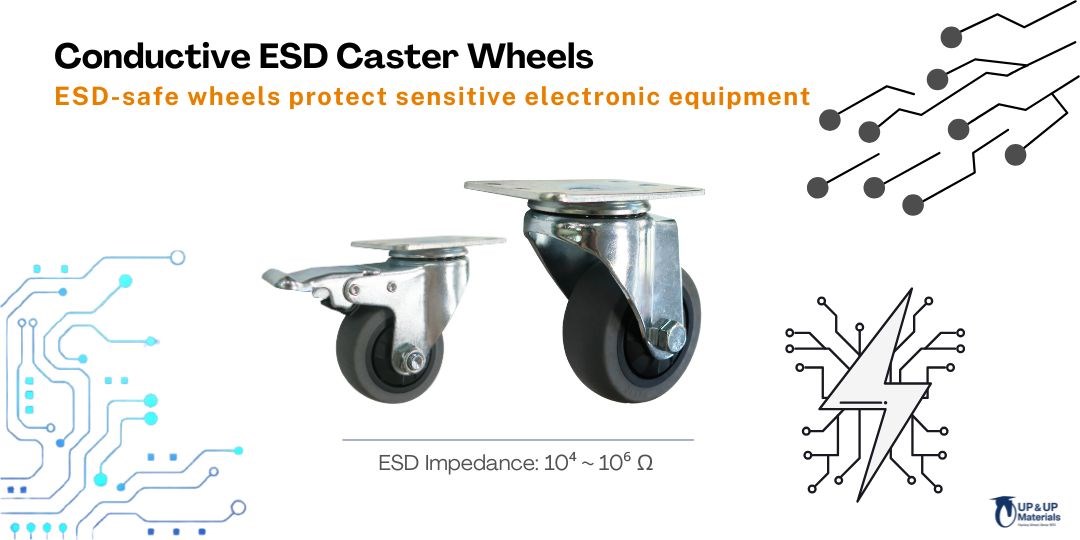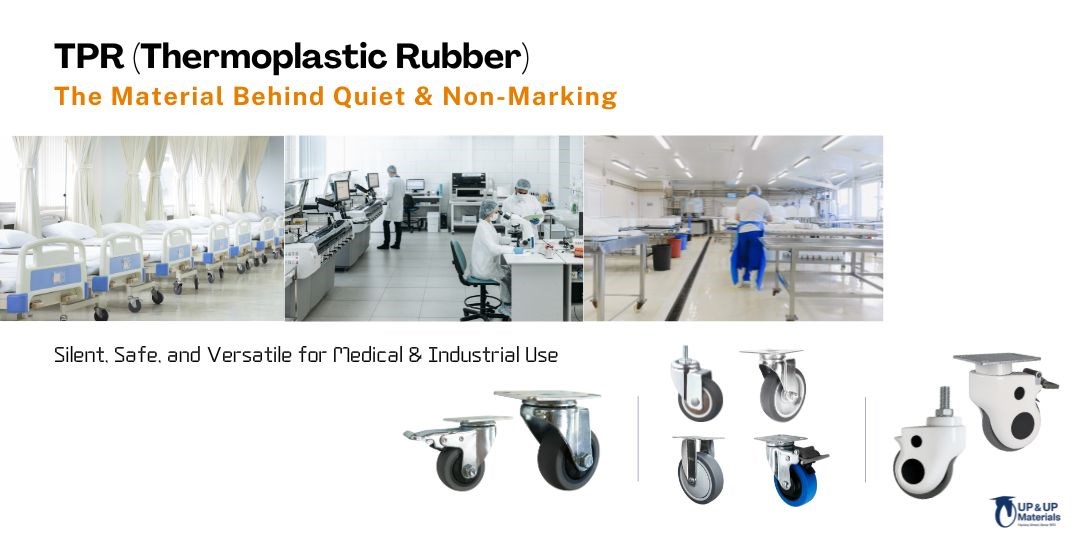Conductive Casters: Industrial Applications & Advantages of ESD Wheels

Protect sensitive equipment and enhance workplace safety with the right conductive caster solution
Summary
Conductive casters—also known as ESD (Electrostatic Discharge) wheels—are essential for industries where static electricity poses risks to equipment, materials, or personnel.
Whether used in cleanrooms, hospitals, or production lines, these casters effectively eliminate static buildup and ensure smooth, silent, and safe mobility.
In this article, we explore their features, industrial applications, and selection tips to help you choose the ideal solution.
Key Features of Conductive Casters
- Reliable Static Dissipation
Conductive wheels quickly discharge accumulated static electricity to prevent interference with sensitive electronics and reduce fire risks in volatile environments - Durable & Pressure-Resistant
Our casters are made of high-resilience TPR (Thermoplastic Rubber), offering exceptional wear resistance and pressure endurance for long-term use. - Smooth & Silent Operation
Equipped with precision ball bearings, our conductive casters glide quietly—ideal for quiet workspaces such as hospitals or labs. - Anti-Dust Attraction
Special surface treatments reduce particle adhesion, helping maintain cleanliness in sterile or cleanroom environments.

Applications in Industrial Settings
- Cleanroom Equipment
ESD control is critical in semiconductor and pharmaceutical facilities. Our conductive casters help minimize static buildup and airborne contamination. - Medical Devices & Hospital Trolleys
Used in diagnostic carts, surgical trolleys, and stainless steel medical carts, conductive wheels reduce shock risk and ensure smooth mobility on delicate flooring. - Manufacturing & Assembly Lines
From mobile tool carts to ESD workstations, conductive casters ensure safe and efficient operations in electronics or precision manufacturing environments. - Warehouse & Logistics
Improve operational safety by using ESD casters in static-sensitive areas, such as automated systems, mobile racks, and packaging stations.
How to Choose the Right Conductive Caster
When selecting conductive casters for industrial use, consider the following:
| Selection Criteria | Key Consideration |
| ESD Resistance Range | Aim for impedance between 10⁴–10⁶ Ω for balanced conductivity and safety. |
| Load Capacity | Choose the proper size (e.g., 3", 4", 5") based on expected load and application. |
| Material & Durability | Opt for TPR wheels with ball bearings for quiet, long-lasting performance. |
| Mounting Types | Swivel, rigid, or brake-equipped—choose based on equipment type. |
UP & UP Conductive Wheel Options
We offer high-quality TPR conductive casters in:
| Wheel Material | TPR (Thermoplastic Rubber) | ||
| Bearing | Ball Bearing | ||
| ESD Impedance | 10⁴ ~ 10⁶ Ω | ||
| Mounting Types | Plate, Threaded Stem | ||
| Types | Rigid, Swivel, Swivel with Brake | ||
| Wheel Diameter | 3" (75mm) | 4" (100mm) | 5" (125mm) |
| Load Capacity | 50 kg | 80 kg | 100 kg |
👉 View Product Page: TPR Conductive Casters | ESD Caster with Ball Bearing (3"-5")
Conclusion
Conductive casters are critical in modern industrial operations where static control, durability and smooth movement matter.
By selecting the right ESD caster based on your working environment, you can reduce risks, enhance safety, and extend equipment lifespan.
- ✉️ Email: [email protected]
- 📞 TEL: +886-2-2999-1469
- 📠 FAX: +886-2-2999-8377



